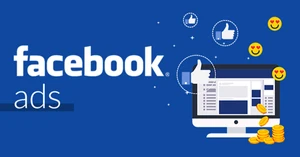What are Social Media Management Tools?
Social media management tools are software solutions that are developed mainly to assist individuals and teams in efficiently managing their presence across various social media platforms. These tools mostly come with features such as scheduling posts, suggesting content ideas, and boosting posts to increase their visibility. They are widely used by departments like social media, marketing, and communications to boost brand awareness, streamline workflows, and engage with online communities.
With the help of these tools, users can create compelling content for marketing campaigns and maintain an active online presence. They come with features like content libraries, scheduling calendars, and performance analytics to optimize the impact of social media efforts. Additionally, they contribute to better search engine visibility, drive greater website traffic, boost customer satisfaction, and achieve higher conversion rates.
What Is the Purpose of Social Media Management Tools?
The purpose of social media management software is to simplify and enhance the process of managing social media accounts. It enables users to efficiently plan posts across various platforms using a unified interface. Alongside this, features like analytics, brand awareness campaign tools, and communication tools vary based on the software and plan. This software centralizes posting, saving time and ensuring consistent content.
Analytics aid in measuring performance, while brand tools and communication aids streamline marketing efforts. In essence, social media management software streamlines tasks, increases efficiency, and provides valuable insights to optimize social media strategies.
Why are Social Media Management Tools Important?
As social media has taken over the world, social media management tools have proved to be a boon for content developers and marketing strategists, helping them manage a variety of important tasks. The importance of social media management tools becomes clear when we consider the following aspects.
Streamlining Social Media Marketing Efforts
- Media management software is instrumental in efficiently streamlining and optimizing activities related to social media marketing.
- These tools provide a centralized platform to manage multiple social media accounts, allowing businesses to efficiently handle their online presence.
Establishing Personal Connections
- Social media serves as a powerful channel for businesses to establish personal connections with their audience.
- Through platforms like Instagram, Facebook, Twitter, and LinkedIn, companies can engage with users, share updates, and participate in conversations.
Sharing Updates and Engaging in Conversations
- Social media management systems enable businesses to share timely updates, news, and content with their followers.
- They facilitate quick responses to comments, messages, and mentions, ensuring real-time engagement and building brand loyalty.
Cultivating Loyalty
- By consistently maintaining an interactive and captivating social media presence, businesses can strengthen customer loyalty.
- Regular interactions and meaningful content help create a sense of community around the brand, that in turn encourages customers to stay connected.
Target Audience
- Social media management platforms cater to a wide range of users, including marketing managers, content creators, and small business owners.
- These tools accommodate different levels of expertise and needs, making them accessible to various types of users.
Efficient Post Scheduling
- One of the key features of social media scheduling tools is the ability to pre-schedule posts efficiently.
- Tools such as social media post scheduler, are often used to plan and create content ahead of time that ensures a consistent posting schedule even during busy periods.
Managing Multiple Accounts
- Businesses often maintain a presence on multiple social media platforms. Social media management platforms enable users to efficiently handle multiple accounts from a single dashboard.
- This approach saves significant time and effort, and also eliminates the need for frequent logins to different accounts.
Metrics for Strategy Refinement
- Social media management platforms provide valuable insights through top-level metrics and analytics.
- Users can track engagement, reach, click-through rates, and more, helping them refine their social media strategies for better performance.
Lead Generation Potential
- Social monitoring tools are equipped with features to facilitate lead generation through social media.
- By monitoring interactions, tracking user behavior, and analyzing data, businesses can identify potential leads and convert them into customers.
Cultivating Viable Business Prospects
- Social media management tools help harness the full potential of social media for business growth.
- By identifying and reaching out to potential customers, businesses can expand their client base and increase revenue.
Enhanced Engagement and Time Savings
- By finding and engaging potential customers, businesses can grow their customer base and make more money.
- Features of social media posting software such as automated posting and interaction not just save time but also enable users to concentrate on other important business tasks.
Unlocking Marketing Potential
- Social media planning tools unlock the full marketing potential of digital platforms.
- They enable businesses to use the vast reach and communication capabilities of social media, resulting in increased brand visibility and awareness.
What Types of Social Media Management Tools Are There?
Social media is always evolving, and so are the tools that companies use to make their social media work easier and smarter. Some new social media tools include;
- Ad Management Platforms: Platforms that facilitate the creation, management, and tracking of paid social media advertisements.
- Automated Social Customer Service Tools: These tools automate responses and support interactions with customers on social media. They ensure timely and efficient assistance by promptly addressing inquiries and concerns.
- Content Creation Tools: These tools facilitate the creation of compelling visuals and content written, helping businesses design eye-catching posts that resonate with their audience.
- Content Curation Tools: These tools assist in discovering and gathering relevant content from various sources to share on social media, helping maintain a consistent and engaging posting schedule.
- Employee Advocacy Platforms: These platforms enable companies to utilize their employees' social networks for enhancing brand messages, broadening reach, and adding authenticity.
- Hashtag Tracking Tools: These tools help monitor the performance and engagement of specific hashtags used in social media campaigns.
- Influencer Management Tools: These tools assist in identifying, engaging, and managing relationships with influencers who can promote products and services to a broader audience.
- Social Contest and Giveaway Platforms: Tools designed to run contests and giveaways on social media, promoting engagement and expanding reach.
- Social CRM Tools: Integration of customer relationship management features into social media management, facilitating personalized interactions with followers.
- Social Listening and Monitoring Tools: These tools track brand mentions, customer sentiment, and conversations across social platforms, providing insights to enhance engagement strategies.
- Social Media Collaboration Tools: Tools designed to improve team collaboration, workflow management, and content approval processes for social media marketing teams.
- Social Media Scheduling Platforms: These apps enable users to plan and schedule posts across different social platforms in advance, ensuring a consistent online presence and saving time.
- Tools for Social Media Analytics: These tools provide insights into social media performance, including metrics such as engagement, reach, and audience demographics. This aids in making informed decisions to enhance strategy effectiveness.
- Video Editing and Publishing Tools: Specific tools tailored for creating, editing, and publishing video content optimized for various social media platforms.
- Visual Design Tools: Tools specifically focused on creating visually appealing content for social media, including graphics, videos, and infographics.
Key Features of Social Media Management Tools
Social media management tools vary in features, but some essential ones to consider are:
- Canva Integration: Create and share visual content without switching between tools.
- Custom Rich Text Fonts: Enhance posts with diverse fonts for increased engagement.
- Engagement Management: Centralize interactions, comments, and mentions for improved customer relationships.
- First Comment and Like Scheduler: Optimize engagement by scheduling first comments and likes.
- Hashtag Tools: Discover, save, and analyze hashtags for improved content strategy.
- Instagram Reels Direct Publishing: Simplify publishing Instagram Reels directly from the management tool.
- Location Tagging in Instagram Posts: Tag locations in scheduled Instagram posts seamlessly.
- Optimal Posting Times: Post content at peak engagement times for better reach.
- Performance Analytics and Reporting: Measure content and team performance, generate custom reports, and assess competitors.
- Post Publishing: Schedule and manage posts across multiple platforms, utilizing visual content calendars and scheduling features.
- Reviews Management: Streamline reviews across platforms, manage feedback, and track analytics.
- Social Listening: Keep track of discussions and references to the brand to gather insights and identify available opportunities.
- TikTok Post Scheduler: Plan, schedule, and publish TikTok content through the tool.
- Twitter Thread Maker: Streamline the creation and scheduling of Twitter threads.
Benefits of Social Media Management Tools
Social media management tools are a great way to handle your social media strategy effectively. Here are a few benefits;
- Audience Insight: Analytics reveal who follows you, their location, and demographics, aiding informed marketing decisions.
- Faster Response Times: Social media requires swift responses. Management tools centralize comments and mentions, ensuring timely reactions.
- Greater Customer Engagement: Platforms offer personalized interactions, making way for one-on-one connections.
- Improved Customer Support: Responding promptly to customer queries enhances satisfaction and loyalty.
- Increased Brand Awareness: Social media connects you to a broader audience compared to traditional advertising.
- More Cost-effective: Social media is often a more affordable marketing option than traditional methods.
- Reputation Management: With social listening features, you can swiftly respond to negative customer comments, addressing issues before they escalate.
- Time Savings: Using these tools, you can schedule posts ahead of time. This helps maintain a consistent online presence and saves valuable time. Your team can work more efficiently by scheduling content at the best times, instead of rushing during peak hours.
Top Social Media Management Tools
| Product names | Key features | Pricing |
| Zoho Social | Creators Publishing & Scheduling, Analytics, Inbox/Listening, Collaboration | Starting at $15/month, includes a 15-day free trial |
| Buffer | Smart & Advanced Queueing, Customize Post for Each Platform, AI Assistant info-icon | Always free plan. Paid options begin at $6/month per channel, with a 14-day free trial |
| Hootsuite | Team Collaboration, Social Media Advertising, App Directory, Security & Compliance | Beginning at $99/month, comes with a 30-day free trial |
| Sprout Social | Scheduling, Messaging, Reporting, Campaign Planning | Paid plans start at $89/user/month, with a 30-day trial period |
How to Find the Best Social Media Management Tools?
Choosing the right social media management tools is essential for optimizing your online presence. Here are few suggestions to help you find the ideal tools for your needs;
- Budget Consideration: Eliminate tools that don't fit your budget. Shortlist three options that meet your criteria.
- Choose and Implement: Your tool choice matters less than implementing it effectively. Invest time in setup and configuration. Success relies on your commitment to use the tool efficiently.
- Identify Your Needs: Determine exactly what you require from a social media tool. Focus on your goals and challenges, avoiding unnecessary features.
- Implementation Matters: The tool's value comes from how well you use it. Focus on configuration to improve efficiency and align with your brand's goals.
- Set Evaluation Criteria: Consider core functions like content publishing, community engagement, trend tracking, and reporting. Account for integration with existing tools and the number of users and channels needed.
- Understand Your Current Situation: Review your current social media strategy, platforms, and tactics. Assess available resources, staff, and technology. Identify where you're spending most of your time.






















